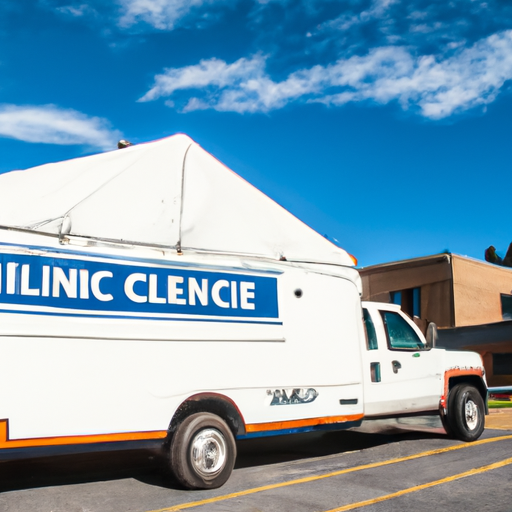Addressing the Opioid Crisis through Mobile Primary Care in Barrington
In a bid to address the rising opioid crisis in Canada, a mobile primary care clinic has been launched in Barrington, Nova Scotia, as reported by Nova Scotia Health Authority.
The Opioid Crisis
The opioid crisis is an ongoing international public health emergency with a significant bearing on the Canadian landscape. The crisis refers to the increasing number of deaths and hospitalizations caused by opioids, including fentanyl, heroin, and prescription opioids. The rise of opioid-associated deaths has been noted across the provinces, reflecting a national emergency that warrants rapid and effective intervention.
Impact on Community
The societal impact of the opioid crisis is significant and transcends the healthcare sector:
- The rise of homeless populations: Personal addictions often result in loss of regular income, expulsion from homes, and eventually a life in the streets.
- Increase in crime rates: Addiction can make individuals resort to crime as a means to sustain their habits.
- Influence on mental health: High rates of concurrent mental health conditions have been noted among individuals abusing opioids.
Primary Care Clinics – A Potential Source of Solution
Contrary to punitive approaches to the opioid crisis, primary care approaches focus on rehabilitation and alternative therapy routes that aim to restore individuals to their healthy state. Primary care clinics, specifically, foster a direct connection between healthcare providers and patients – allowing providers to understand their patients’ health needs more accurately and provide personalized solutions.
The Barrington Initiative
The Barrington Initiative, funded by the Nova Scotia Health Authority, has led to the establishment of a Mobile Primary Care Clinic. The emphasis of this clinic is on providing easy-to-access, comprehensive primary healthcare services to homeless individuals struggling with opioid addiction.
Services Offered by the Clinic
The clinic provides a wide array of services, including:
- Primary healthcare: Regular health check-ups, diagnosis, and treatment of health conditions.
- Addiction counselling and support: Personal counselling and group therapy sessions to help individuals manage and overcome addiction.
- Naloxone distribution: Distribution of naloxone kits to enable quick responses to opioid overdoses.
- Harm reduction education and services: Education about safer drug usage without stigmatization and judgement as a part of holistic addiction approach.
Future Scope
The Barrington Initiative represents a significant shift in addressing the opioid crisis. It mirrors the shift towards rehabilitation and recovery rather than punishment and is a model that can be replicated across regions grappling with the opioid crisis. Similar mobile primary care clinics can serve as crucial contact points for marginalized communities.
Key Takeaways
The opioid crisis in Canada continues to be a severe public health challenge that needs urgent attention. The Barrington Initiative’s Mobile Primary Care Clinic offers a unique solution, combining primary healthcare with addiction support, naloxone distribution, and harm reduction education. By addressing both the physical and mental health needs of the individuals, these clinics offer a comprehensive approach to address addiction at a grassroots level.
The societal impacts of the opioid crisis – including the rise of homeless populations and the surge in crime rates – call for a holistic approach to the problem. Through the mobile primary care clinics, various regions across Canada can hope to constructively engage the marginalized sections of society, making concrete steps towards healthier communities.
In conclusion, approaches such as the Barrington Initiative embody the necessary shift from punitive measures to rehabilitative strategies in addressing the opioid crisis. It is a model that should inspire similar action in other regions grappling with the crisis.
